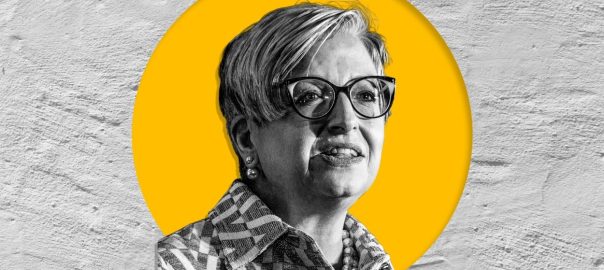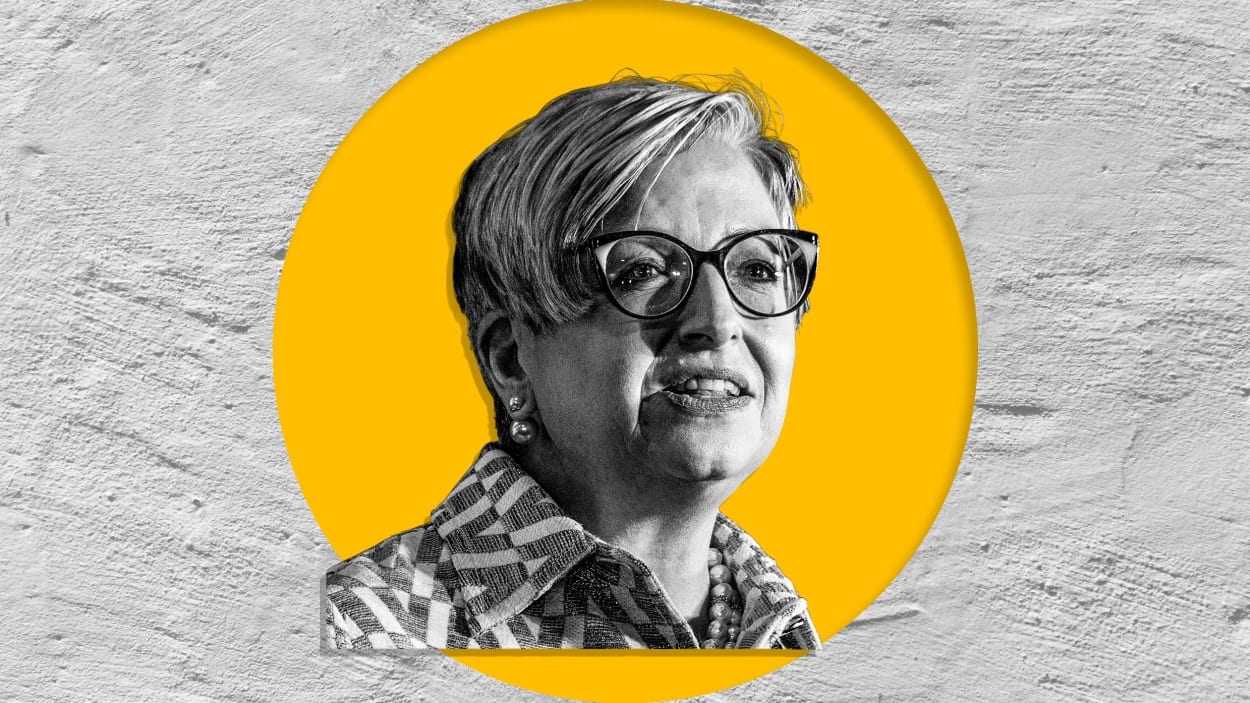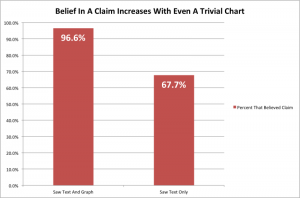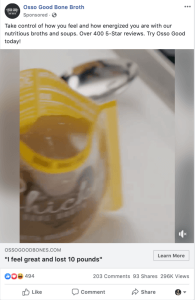UPS and the Teamsters pulled off what seemed to many like an impossible task on Tuesday, reaching a collective bargaining agreement that will prevent a strike at the nation’s largest private shipping company. It was a victory both for the union and the company—and it thrust CEO Carol Tomé further into the spotlight.
Tomé, who took over leadership of the company in 2020, is the 12th CEO in UPS’s 115-year history. And few have made an impression in a shorter period of time. She’s altered the culture. She has resisted the temptation to grow quickly to focus on the company’s infrastructure. And now, she can add heading off the first strike in 26 years to her list of achievements.
Curious to learn a bit more about Tomé and her time at UPS? Here are a few things to know.
She took the reins at UPS just as the pandemic hit
Tomé was no stranger to UPS before becoming CEO. She had been a board member with the company since 2003. She formally accepted the CEO job at the start of March 2020, planning to transition into the role in June. Within days, it had become a lot more complicated than she ever imagined. On March 11, the World Health Organization declared COVID-19 a pandemic, forcing UPS to upend its operations.
“I’d planned to spend my first few months as CEO on a listening tour, traveling to a number of our more than 2,000 operating facilities around the world and talking to employees,” Tomé wrote in an essay for Harvard Business Review. “Instead I found myself in a whirlwind of activity, working with the rest of the leadership team to push our way through the pandemic while also planning our future.”
She quickly changed several long-standing policies at UPS upon becoming CEO
Much like Disney in the early 2010s, UPS had a number of policies and procedures that some employees found to be restrictive. Tomé quickly did away with several of those, allowing drivers to finally have facial hair or to wear their hair naturally, in hairstyles including Afros and dreadlocks. Other changes included doing away with restrictions on tattoos and piercings.
“Some of our policies and procedures needed to change so we could become an employer of choice,” she said during a one-on-one at Fast Company’s Innovation Festival 2021. “We want UPSers to bring their real, authentic self to work, in a professional way of course. But they should be able to bring natural hair or facial hair, so we changed that policy. . . . Our tattoo policy was stricter than the U.S. Army.”
She runs a philanthropic foundation with her husband
Beyond her work with UPS, Tomé and her husband Ramon established and oversee The Tomé Foundation, a philanthropic effort that funds educational scholarships at accredited colleges and universities for women and minorities in STEAM (Science, Technology, Engineering, Arts, and Math) and donates to a variety of programs.
In 2022, the foundation donated to 21 organizations around Atlanta and provided a total of 33 scholarships to seven schools.
UPS has thrived under her leadership
Since Tomé took over as CEO, UPS stock has gone up more than 85%—and revenues in 2022 hit $100 billion for the first time ever.
She quickly made an impression on her first earnings call, as well, with Bloomberg writing, “In One Earnings Call, UPS CEO Makes Job Her Own.”
She avoided what could have been a catastrophic strike
In 1997, UPS drivers walked off the job for 19 days, costing the company hundreds of millions of dollars and building up a backlog of 7 million packages. Had the Teamsters walked out on August 1, however, the results could have been much, much worse, with some estimates saying it could have cost the U.S. economy over $7 billion. Today, UPS delivers an average of 24.3 million packages per day.
Under the tentative five-year agreement, existing full- and part-time employees covered by the union will earn $2.75 more per hour this year, and $7.50 more per hour over the length of the contract. Part-timers will see their wages increased to no less than $21 per hour.
“Together we reached a win-win-win agreement on the issues that are important to Teamsters leadership, our employees, and to UPS and our customers,” Tomé said in a statement announcing the agreement. “This agreement continues to reward UPS’s full- and part-time employees with industry-leading pay and benefits while retaining the flexibility we need to stay competitive, serve our customers, and keep our business strong.”
She spent nearly a quarter-century with Home Depot and had planned to retire after that
Tomé didn’t expect to be where she is today. She spent 24 years with The Home Depot, including a long stint as chief financial officer. She had been a candidate for the CEO position at that company in 2014, but the job ultimately went to Craig Menear. Many thought she would leave, but she stayed on with the company for several years before retiring in 2019.
That might have been it, but as UPS directors crafted the leadership profile that matched her experience, she abandoned retirement to run the company.
“I knew that UPS was an amazing organization with a powerful brand, a culture, and values perfectly aligned with my own,” she wrote. “Because the company’s stock had been flat for six years, there was also an opportunity to create value for shareholders. And, frankly, my husband was keen to get me out of the house and working again.”
She wants a big part of her legacy to be her impact on employees
Days before she officially started as CEO, the video of George Floyd’s death appeared online. Tomé had previously taped an introductory video for employees expressing her excitement about running UPS, but discarded it—and sent out a letter to workers instead.
“The message—basically, ‘We’re going to kick ass and have some fun doing it!’—had now become entirely inappropriate,” she wrote. “So I replaced it with a letter in which I described my emotions—anger, shame, sadness—and explained that I wanted to turn all of that into values-led action.”
The people at UPS were, in fact, one of the chief reasons she decided to take the job, she noted at Fast Company’s 2021 Innovation Festival.
“I am so proud of the impact I had on people,” she said. “One of the reasons I came [to UPS] was, oh my goodness, with 540,000 people, and I love to develop people and hope to have a positive impact on them, what a great opportunity that would be.”
Her actions seemed to work. In her first nine months with the company, the number of UPS employees who recommended working for the company jumped from 51% to 64%.
Tomé says her personal purpose statement is, “Lead to inspire. Serve to create. Give to remain.” And she hopes, she says, that by following that, she can motivate workers and improve their morale.
“This purpose drives me every day,” she said on a podcast. “I know that one way I can make a difference here is to inspire over 500,000 people every day to get up and continue to do it.”
(27)






